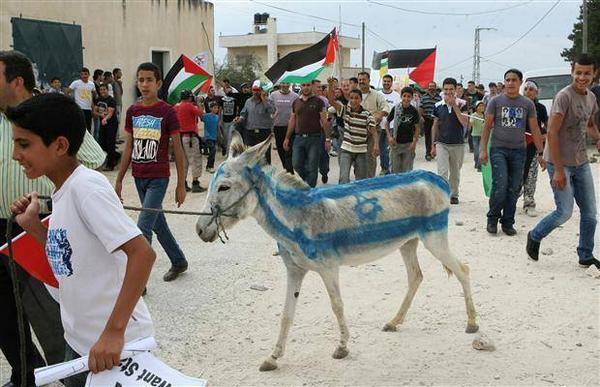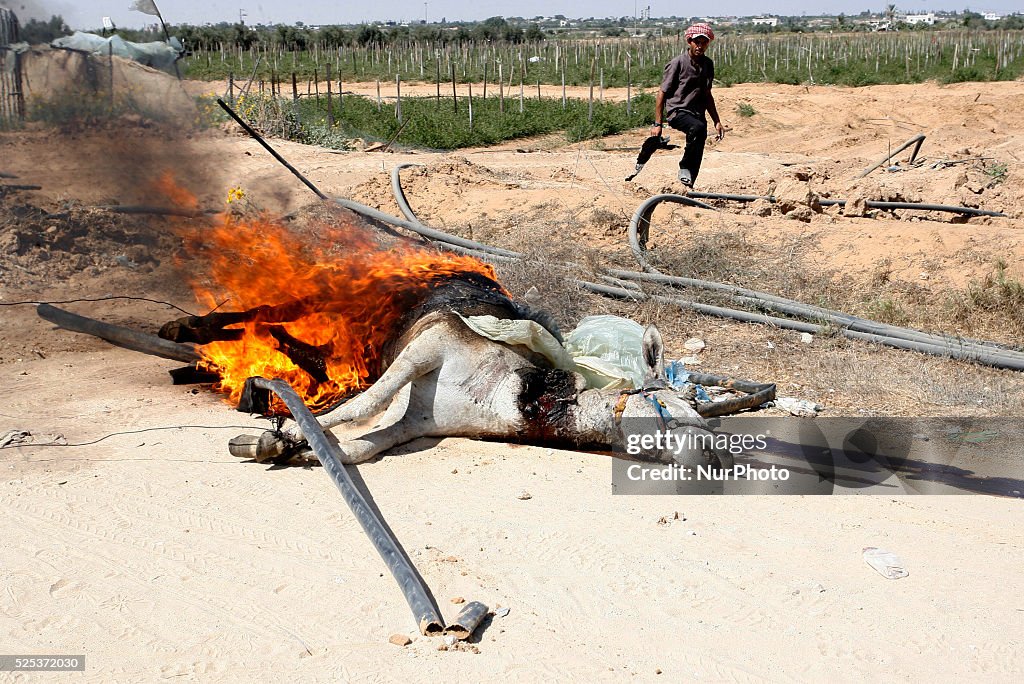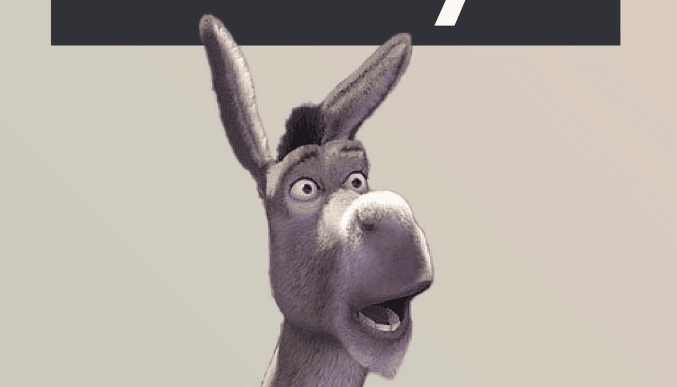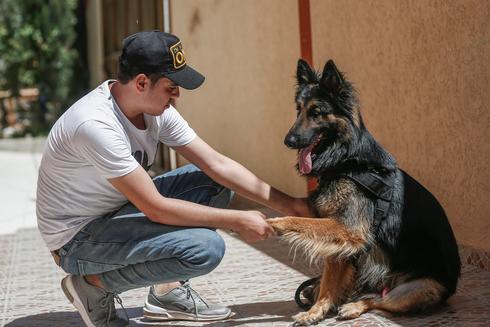P F Tinmore
Diamond Member
- Dec 6, 2009
- 83,599
- 4,685
- 1,815
Indeed, every post is a smear piece.Yup. You just can’t tolerate it when anything even the teensiest positive about Palestinians is posted.
Follow along with the video below to see how to install our site as a web app on your home screen.
Note: This feature may not be available in some browsers.
Indeed, every post is a smear piece.Yup. You just can’t tolerate it when anything even the teensiest positive about Palestinians is posted.
Really, the donkey with blue stripes drawn on it - was killed by Israel?


Tell me you don't understand how denial translates
into further animal abuse by supporting this ideology?

Israel-Haters Make Asses of Themselves With Latest Demonizing Efforts
Israel-haters have been bashing Israel for our latest, supposed act of evil: banning the import of donkeys into Gaza.www.israellycool.com


Sadly, these ridiculous excuses only demonstrateYou now have three different images you posted and seem to be deliberately mixing here. Ok.
First you posted this, with text claiming the donkey in the flag was burned alive. Or don’t you remember what you posted? You accuse others of posting pictures not fitting the description…well that is exactly what you posted.
View attachment 735647
It’s easy now search images.
The image of the donkey that was burned is from 2014, here: Palestinians burn the donkey, who was killed earlier by an Israeli...
The donkey draped in a flag is from 2018, here: 7 Palestinians killed, 5 seriously wounded in 'Friday of Tires' protest
Then, you throw in a THIRD donkey, painted like a flag.
View attachment 735654
If your point is that animal cruelty is largely ignored by the Palestinian government, I agree. If your point is that it is engrained in the regional cultures I would also agree, but groups like the one I posted about are the people in those regional cultures trying to change things.
Instead of posting fake memes why don’t you post a real article?
For example this horrific case:

Man sets ‘disobedient’ donkey on fire
Animal activist says Palestinian government neglects animal welfare, turns a blind eye to abusegulfnews.com
The problem with this though is in addition to the callous brutality to the donkey, the indifference of the government, it also shows the people trying to do something about It. That might not work for you,
What ever you say.Sadly, these ridiculous excuses only demonstrate
animal abuse is even more common as result of
supporting such an ideology.
What ever you say.
Hani Al-Nadi, 40, a donkey dealer, said that Israel prevented him and other traders from importing the animals into Gaza.
He said an Israeli nongovernmental organization claimed that donkeys are tortured in Gaza and that after they are imported from Israel, they are slaughtered and their skins are sold to China via Egypt.

 www.arabnews.com
www.arabnews.com
Of course.Of course, because it was never about animal abuse but a public image farce,
in response to recent news revealing the animal abuse promoted
by the Hebron mayor of the Pal-Arab government.
Why make it about me instead of
the results of exploiting animals
in support of such ideology...

Israeli ban on donkey import stops the wheel of Gaza cart economy
GAZA CITY: Cattle carts arriving at the vegetable market in the Sheikh Radwan neighborhood of Gaza and vendors and shoppers flocking to them have been a regular feature for years in the strip besieged by Israel. But this might become a thing of the past as Israel has been preventing donkeys from...www.arabnews.com
View attachment 736154
Munzer al-Jaabari, a Hebron-based Palestinian man, has kept posting short videos on TikTok about training his German shepherd "Lucy," which has attracted over 30,000 followers and harvested more than 3.2 million likes during the past two years.
"I feel that I am on the right way to achieving my primary goal of changing the negative view in my society towards dogs and pet owners," the 32-year-old blogger told Xinhua.
Al Jaabari came up with the idea in late 2020 when he noticed some residents thought that dog breeders were "violating customs and traditions," and they considered dogs "unclean and should not be approached." Some people even abused stray animals.
"Animals, in particular dogs, are intelligent, and humans can develop their skills for benefit," he said. Thus thinking, al-Jaabari filmed dozens of short videos about playing and training Lucy in a bid to gain more local supporters.
He also shared videos teaching how to raise pets, especially stray dogs.
"Being patient and giving positive reinforcement are the best ways to train dogs. Offering them a reward as soon as they accomplish your order, while if they do not do well, the punishment should not be in a harsh manner," he added.
There are no accurate statistics on the number of pets in Palestine, nor there is a law for animal protection in the Palestinian territories, only a proposal raised years ago by "Palestinian Society for Animal Welfare," an animal rights advocacy group in the West Bank that calls for detailed legislation for animal welfare.

A sincere question? Ok. To some degree, anywhere, conflict and war have a bad effect on animal welfare, along with poverty and the underlying culture. As far as focusing on the conflict,at least one of the articles I posted did not and was especially critical of the Palestinian government.This is not to rain on your wedding, but a sincere question,
if you want to see change regarding animal abuse,
why do such media efforts involving animals aim
mostly at the conflict, instead of pressuring a
policy shift in any of the Pal-Arab govts?
From the link in your post -

Hamas calls quits on beach time for Gaza's dogs
Despite dog ownership being a rising trend, Gaza authorities say they're forced to crack down after locals complain about dogs disrupting public order; people now caught walking dogs in public face a fine or even arrestwww.ynetnews.com
But you can't end poverty and war with arguments about animal abuse,A sincere question? Ok. To some degree, anywhere, conflict and war have a bad effect on animal welfare, along with poverty and the underlying culture. As far as focusing on the conflict,at least one of the articles I posted did not and was especially critical of the Palestinian government.
And, to add,it is groups like those I mentioned who eventually change. In the 35 years that I have lived where I do, I have seen it. There is another wonderful organization in Iran trying to do the same thing I spit of a theocratic government hostile to dogs.
But you can't end poverty and war with arguments about animal abuse,
I hope we agree on that, it looks more like exploiting animals for propaganda.
I think for some it’s just about saving them, trying to give them a better life despite tbe political or cultural situation.Criticism is not a payoff, though rare in Pali narrative, good if it's sincere,
thus my question was more about the motive - is it to brush off the
bad image, exploiting animals for politics, or actually pressure
the Pali-Arab governments to make a policy shift regarding
animal protection?
Genuinely, I do not see these groups as exploiting animals for propaganda. In parts of the world they are the only entities that stand for them. I do not see them as political unless it is to change local laws. They aren’t about ending war or poverty but helping the animals and that seems pretty clear me in their everyday activities. And the fact that they blame both the conflict and the Palestinian government and culture tells me this is genuine, not propaganda.
I think for some it’s just about saving them, trying to give them a better life despite tbe political or cultural situation.
It also depends on the article you read and what spin it takes.
The reality is, any conflict has a devastating effect on animals (and people of course). And it usually means a shortage of supplies,funds, etc. It can be used as propaganda but but to say that those who are working hard to save them are doing it for propaganda purposes doesn’t take into account the hard work and heartbreak that goes into it.
But there are other articles about Palestinian animal welfare activists that are critical of the Palestinian authority and culture.
For example this one: Animals are Victims of Israeli Wars, Too
You can argue that the first article is propaganda against tbe Israeli’s or the second is propaganda against the Palestinians but the truth in my opinion, is that there is accuracy in both. There is no doubt that conflict, poverty and chronic shortages create difficulties for those helping animals but there is also no doubt that culture itself, and it’s governing officials also create significant problems. This is one reason I have a lot of admiration for these people, themselves Palestinians, who are trying to make a difference. Animal welfare, particularly dogs and donkeys, in the Arab world, is not considered important but there are many within the culture trying to change that.

 www.arabnews.com
www.arabnews.com